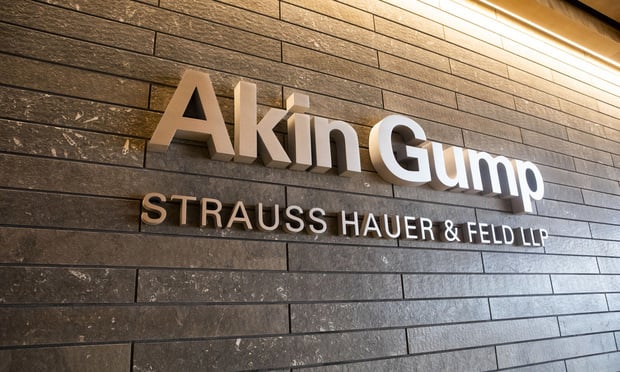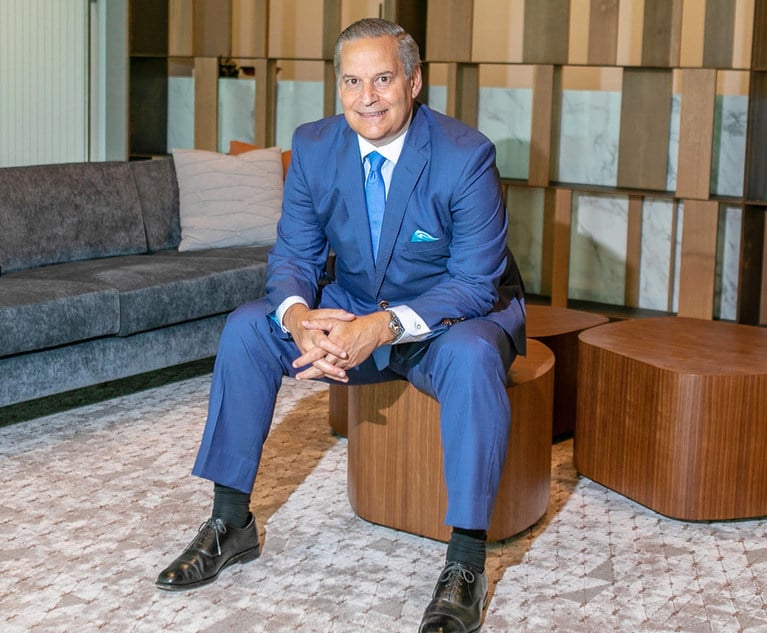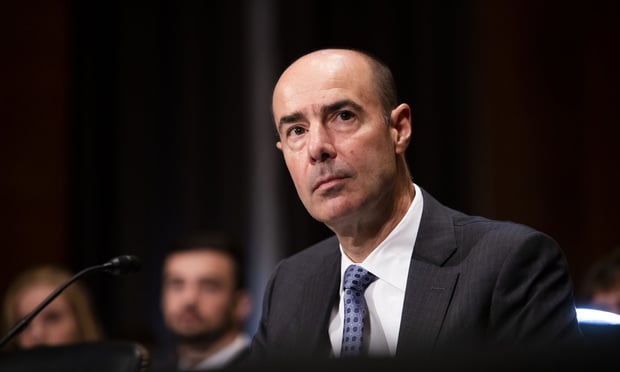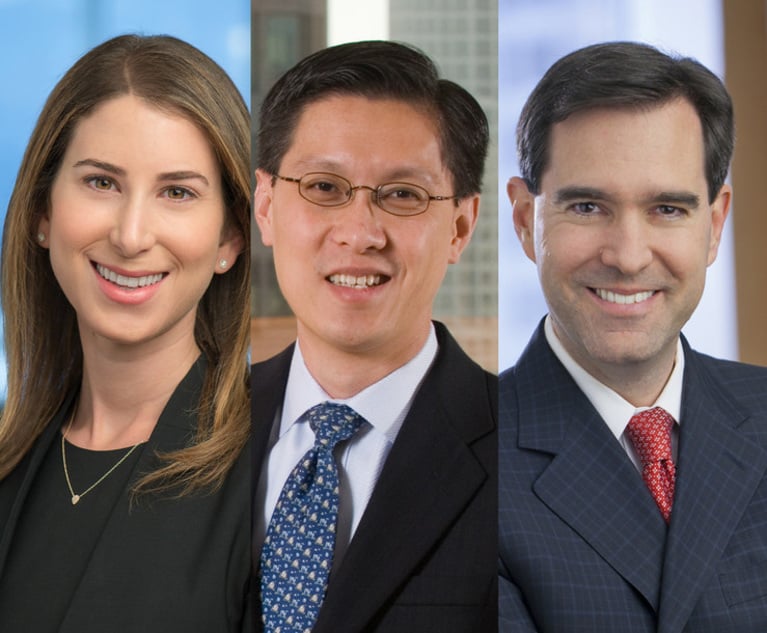Buoyed in part by work stemming from the coronavirus pandemic and the upcoming presidential election, Akin Gump Strauss Hauer & Feld announced this week two new hires to its international trade and white-collar teams.
Matthew Nicely, formerly with Hughes Hubbard & Reed, rejoined Akin Gump on Tuesday as a partner in the firm’s international trade practice in Washington, D.C. His hire comes a day after the addition of Katherine Goldstein, former assistant U.S. attorney for the Southern District of New York and chief of its securities and commodities fraud task force. Goldstein joined from Milbank.

 Photo: Diego M. Radzinschi/ALM
Photo: Diego M. Radzinschi/ALM








